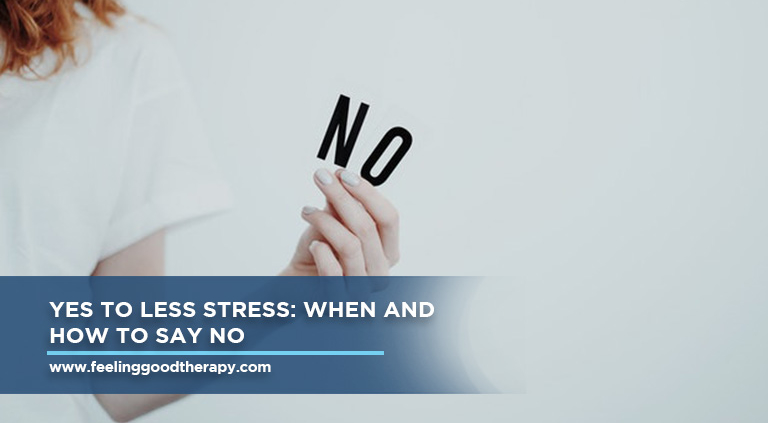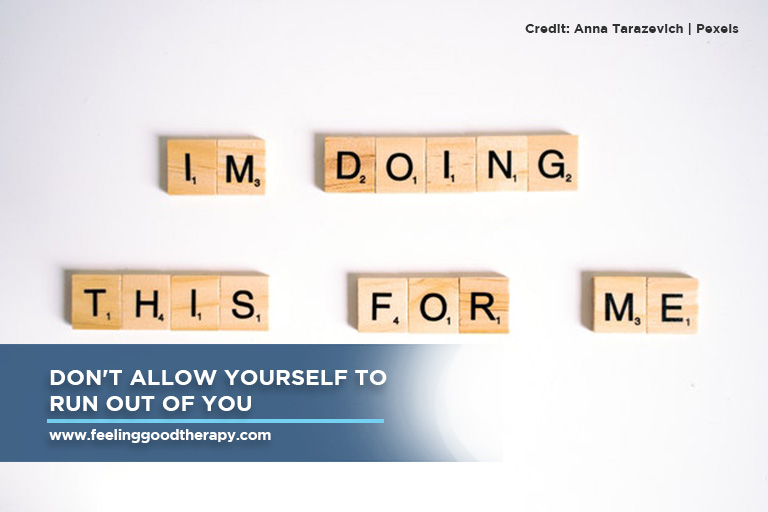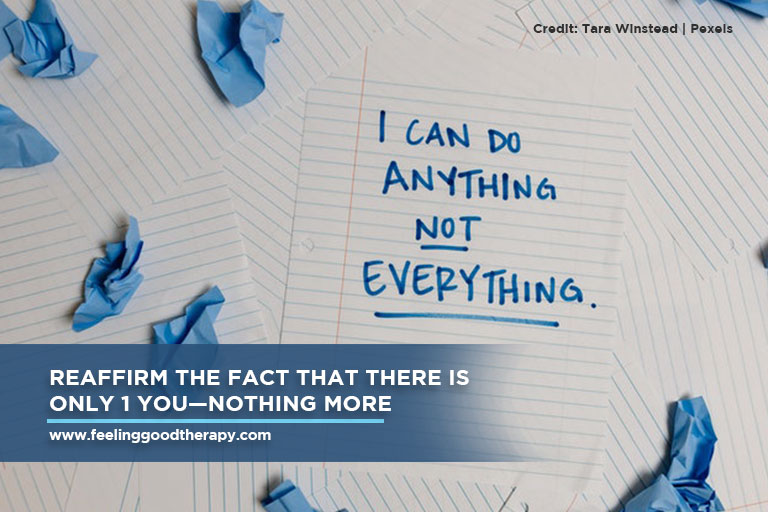YES to Less Stress: When and How to Say NO
“Can you do me a small favor?”
How you answer this question creates a direct impact in your life. Most of the time, you just can’t refuse any favor, especially if the other person is looking at you like you’re their savior. You find yourself giving in even if you don’t have the resources, let alone any idea, on where to start.
If you find yourself saying “yes” to most, if not all, of these “requests”, you’re giving yourself more stress than necessary. Learn to say “no” if it compromises your health and well-being. There’s always a bigger price to pay on your part if you keep on making yourself available for everyone.
Are You Saying “YES” Too Much?
Life provides more opportunities for us to improve ourselves. There’s work, organizations to support, and chores to do. Saying yes to everything that comes your way will drain your energy in the long run.
Here are some signs that you’re overextending yourself:
- You’re busy almost the whole day.
- Your to-do list is too long you can’t even track which ones are done.
- No matter how hard you work, you feel like it’s still not enough.
- You rush things and get impatient along the way.
- Saying “no” makes you feel bad because you don’t want to disappoint somebody or miss an opportunity.
Saying yes to whatever life throws at you diminishes the amount of quality moments that you create with yourself or with somebody else.
Why Say “NO”?
You have to know something—you’re not at everyone’s disposal 24/7. You have things to attend to and you will get tired. There’s no way you can be anyone’s savior when they badly need saving. Your peace of mind always matters in situations that you can’t even handle.
Requests, regardless of intensity, won’t lessen over time. Saying “no” may not be easy, but there will be times you just need to do it for the sake of:
- Self-care
Saying “no” to some requests gives you time to take better care of yourself. Eating out, watching a good movie, or just relaxing in your room would do.
- Lessening their control over you
When you always say “yes” to requests, people think they have control over your time and will keep on making you do favors for them. Some people don’t even think of the stress they can cause to another when asking for favors. This can be toxic, or worse traumatic, for you if the cycle of bad feelings keeps repeating.
- New opportunities for others
Saying “no” to requests gives opportunities for others to do it. This is especially important in a work setting when people have piles of deadlines to work on and a new task comes along the way. When you delegate requests to others, you give them a chance to learn a new skill that might come in handy in the future.
- Pursuing other interests
Saying “no” allows you to pursue other interests outside of your work. You have more time to do your hobbies, go to the gym, and even relax in the comfort of your home.
- Dodging stress
No one likes to be stressed, and if you say “no” to requests, you’re giving yourself more hours to relax. You feel better when you have fewer things to handle.
- Diminishing the guilt
Saying “no” for the time being is not selfish. You can always say “yes” next time a person asks for another request.
How to Stop Saying Yes to Everything
If you keep on saying “yes” to whatever comes your way, now is the time to stop. You don’t have to please everybody all the time by making yourself available.
Take your life back by saying “no” with these simple tips:
- Focus on what’s important. When you have too much on your plate, saying “yes” to a request is an additional burden. Say “no” and focus on the matters that need your attention.
- Weigh things. There are times when you’re not that busy. When someone requests something, think about whether or not the stress it will bring will last for quite some time. If you think it does, look for other ways to help.
- Take the guilt out of the picture. You don’t have to fulfill a request just because you feel guilty.
- Take time to think. Some requests can be physically taxing. Tell the person that you’ll give it some thought before giving your answer. However, always make sure to respond after a day or two. You need to respect the other person’s time as well.
- Say the word “NO”. This two-letter word holds a great deal of power. Never be afraid to use it when you need it. There’s no shame in saying “no”.
- Maintain honesty and respect. Sometimes, “no” can be interpreted as rude. Be honest and respectful in refusing requests. Tell the person why you can’t handle it using the right words. Don’t say that you think you can’t do it and that you’re not sure. The other person might think that you’re saying “yes” later on.
- Make yourself clear. When all else fails and when worse comes to worst, make your stand clear. Some people just don’t understand your first refusal until you make it clear that a no is a no.
How to Minimize the Feeling of Guilt
It takes a great deal of courage and commitment to say no despite the pressure. More often than not, it comes with guilt. That feeling is normal and will linger for some time before it fades away. Take these steps to lessen that feeling of guilt.
- Look at your own limits. People have their own limits, and you’re not an exception. Take a look at how your life would change if you go beyond your boundaries.
- Stand by your decision. You shouldn’t be swayed by further pressure from other people. When people know that you stand on your ground, there would be no reason to force you more.
- Expect various reactions when you say “no”. Some are calm while some are pretty much emotionally charged. Guilt won’t shake you up when you’re prepared enough before saying “no”.
- Detach from emotions. Sometimes, our emotions after saying “no” get the best of us. It can cloud our judgment in the process. Take a step back and assess the situation you’re currently in. Know what you want and make sure to stick by it.
- Never forget why you said “no” in the first place. This lessens the guilt you feel and decreases the chance of saying “yes” to roughly the same requests in the future.
- Trust your gut. Humans have instincts for a reason. Listen to what your gut tells you, especially if a request seems to be a dangerous one. You might not reap the rewards of listening to your gut immediately, but it will unravel its magic of keeping you safe in time.
- Write. If you have a problem with saying “yes” all the time and you just started declining requests, writing about your progress will show your journey. You’d be amazed at how far you’ve come. From someone who gets easily shaken, you’ll bloom into a person who knows what he wants and what he doesn’t.
Get Your Life Back
Learn how to say “no” to what you dread doing, and say “yes” to less stress. If you are having a hard time coping with such changes (and the stress it may bring), help is available for you at Feeling Good Wellness Center. Dr. Dashtban is an online therapist you can talk to from the comfort of your own home, whether you’re in San Francisco, Los Angeles, or Toronto. Call 888-539-1172 now!






